People often use Google Maps to track locations, create itineraries, and view pictures of properties. Nearly two years ago, social media users noticed a bizarre 'black hole' in the middle of the Pacific Ocean on Google Maps. After much speculation and research, they discovered it was an uninhabited coral island called Vostok Island. Fifteen years ago, a diver visited the island and documented his experience for National Geographic.
[iframe https://www.google.com/maps/embed?pb=!1m14!1m8!1m3!1d9575.574228988316!2d-152.3179413!3d-10.0629285!3m2!1i1024!2i768!4f13.1!3m3!1m2!1s0x76dee1bf7125f8f1%3A0x342f8bfa21276cc9!2sVostok%20Island!5e1!3m2!1sen!2sin!4v1722495639359!5m2!1sen!2sin allowfullscreen="allowfullscreen" height="450" style="border-width: 0px; border-style: initial;" width="600"]
Located nearly 4,000 miles east of Australia, Vostok Island looks like a “giant guitar’s pick,” a triangle with nothing visible on it in the aerial view on Google Maps, as per UNILAD. Belonging to the Republic of Kiribati, the secluded island has attracted people's curiosity for decades. For years, people have been cooking up conspiracy and wild theories speculating about the nature of this island with densely forested terrain.
Some people on Reddit claimed it was a “censored” destination that only selected authorities knew about, while others thought it was a secret military base. According to Live Science, Google often blurs out sensitive sites such as military bases or prison yards, to avoid disclosing information about their location and structure.
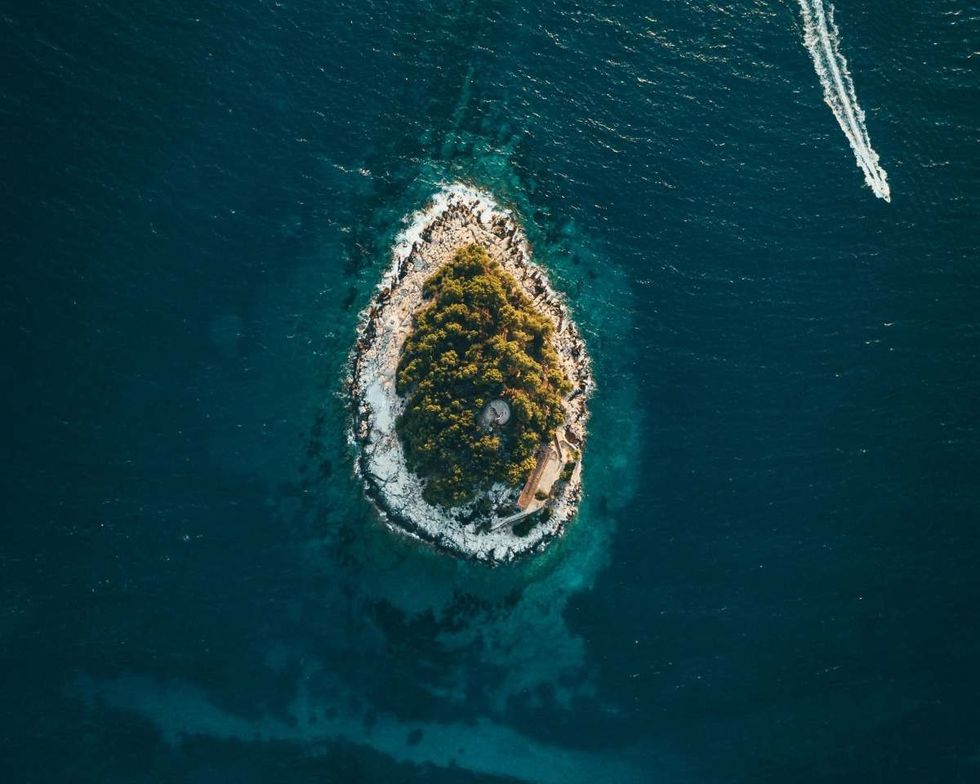
In Reddit’s group r/GoogleMaps, u/the_professor64 pondered that this 'hollow' space could be an underground volcano. “Could maybe be an underground volcano that causes the blackness, assuming it isn't a hole. Most likely igneous rock,” the individual wrote. u/Eternal_memory called it a “portal to Atlantis (a submerged city).” u/newportsnbeerxboxone wondered that “it's probably part of the Russian land bridge that was destroyed long ago.” u/64G1gabyte commented, "Giant lost a guitar pick in the middle of the ocean? Relatable?" Several commented on Google Maps that it looked like a "black hole."


However, when diver Enric Sala visited the mysterious island in 2009, he reported that “he loved swimming around the beautiful corals there.” Despite the odd location, Sala described his dive in the waters around Vostok island as “the very best dive of his life.” The cryptic island is also known to be a well-protected site where schools of sharks prowl around, as well as shoals of barracudas glide in the untouched blue waters. “There were sharks around us, schools of jags, barracuda and surgeon fish, everything,” Sala exclaimed in the footage.
The island remains mostly untouched by human presence, except for occasional divers exploring its waters, due to its remote location, according to The Sun. Covering just 1.3km in length, the island is densely jacketed with thickets of towering Pisonia trees that can grow up to 98 feet. These trees block out the Sun, and cause the island to remain dark. Apart from this, the island hosts a variety of wildlife, including seabirds, skunks, crabs, and turtles. It is appreciated for its "diverse and productive" reef as pointed out by a community ecologist, @StuartSandin, on X.
“Incredible! Really unbelievable. This is the most pristine place we have dived so far. We have found it, this is it. Vostok Island. I cannot wait to get back in the water,” Sala exclaimed with delight, concluding the dive footage. After this 2009 dive, he once again visited the island in 2021, as per an Instagram post.
Despite all this information, people remain curious why the island appears as a hole on Google Maps. According to BBC, the black appearance is probably an optical illusion, caused by Vostok’s dense forest when photographed from low orbit. The trees are dark green, but give off the appearance of black from the top, and that's why on Google Maps, it looks like a “black hole.”









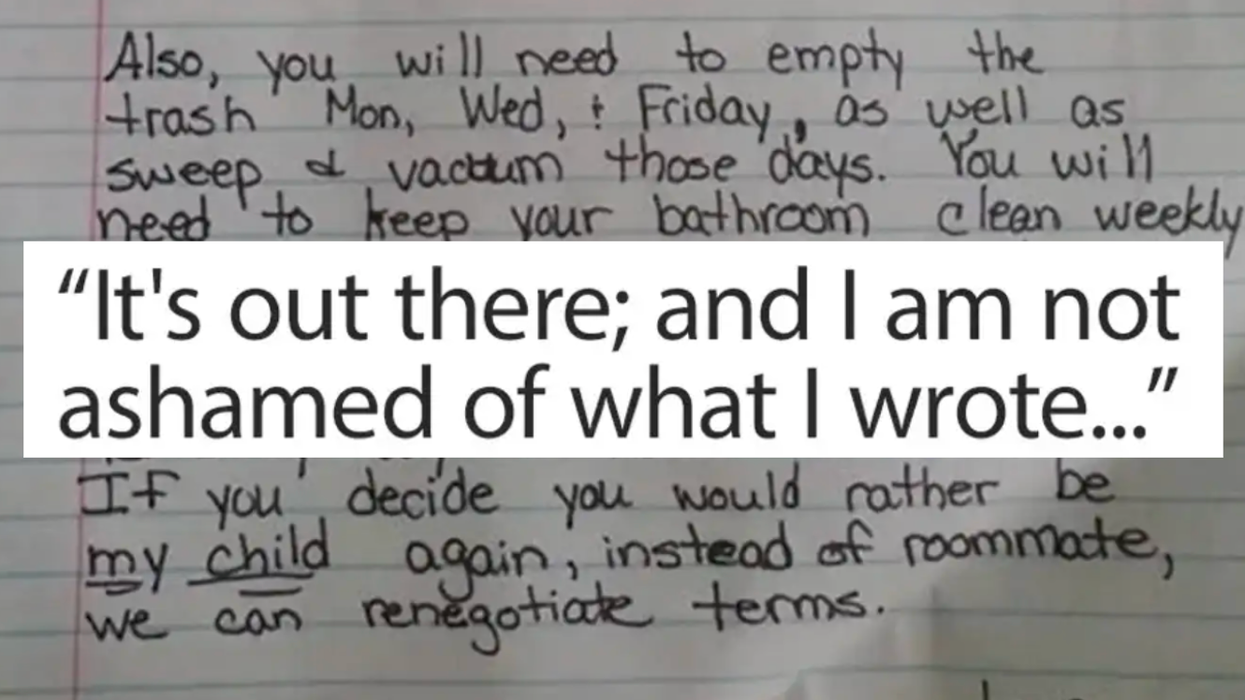
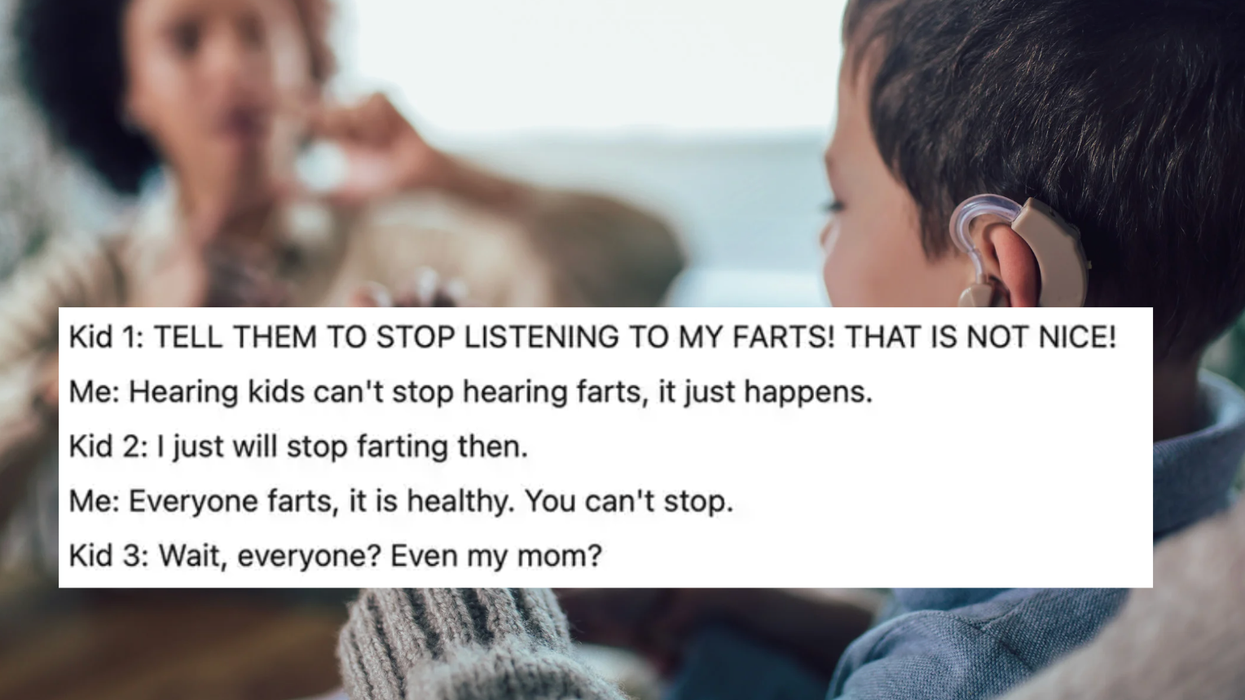







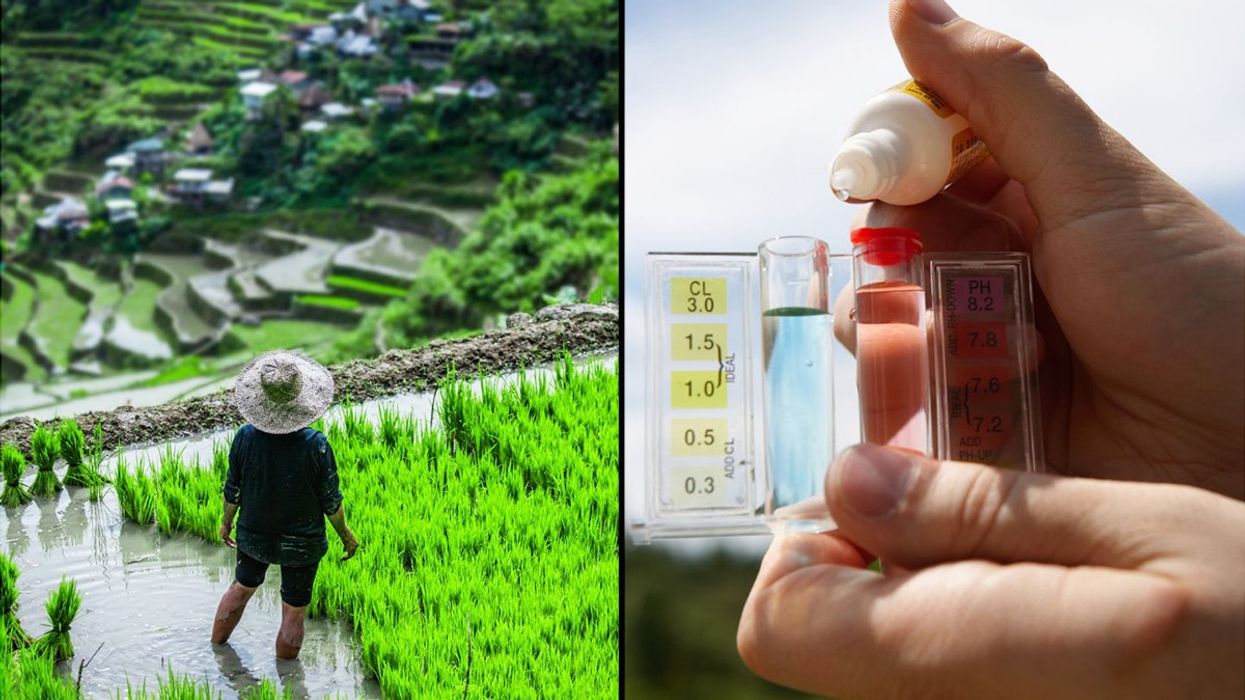
 Rice grain and white rice.Image via
Rice grain and white rice.Image via  Person eats rice.Image via
Person eats rice.Image via  Washing and rinsing rice.
Washing and rinsing rice.  Mother and daughter eating rice meal.Image via
Mother and daughter eating rice meal.Image via 

 Bees feeding on food source.Image via
Bees feeding on food source.Image via 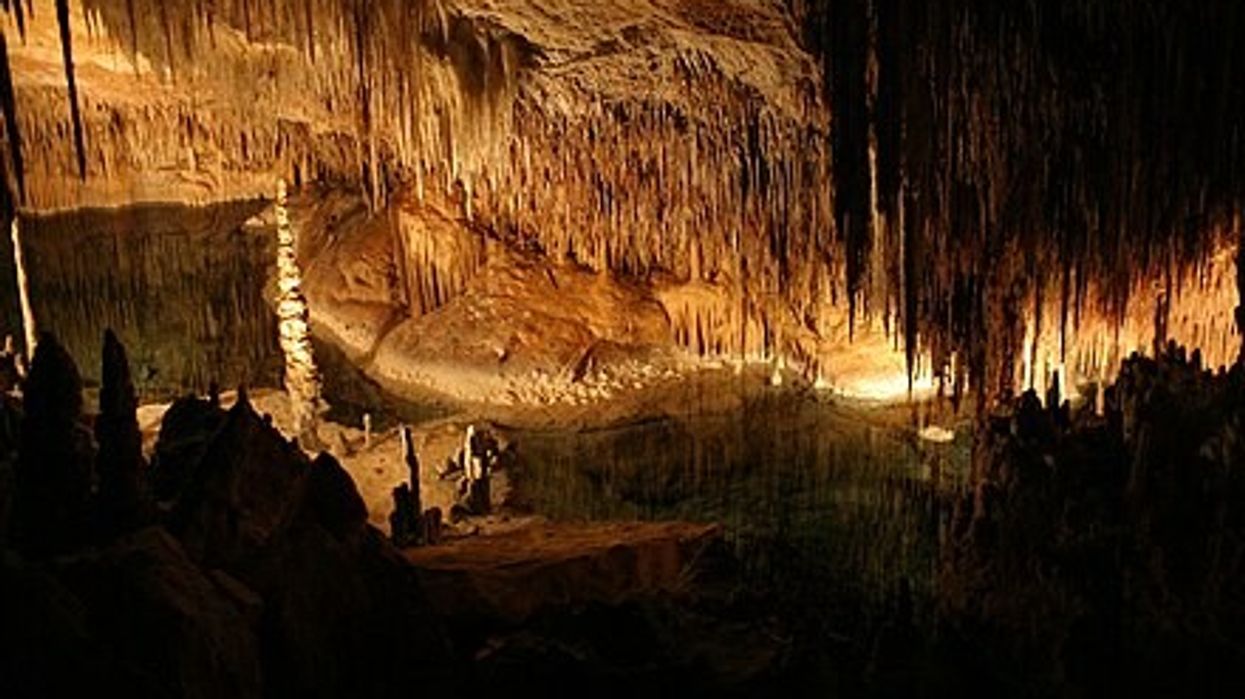
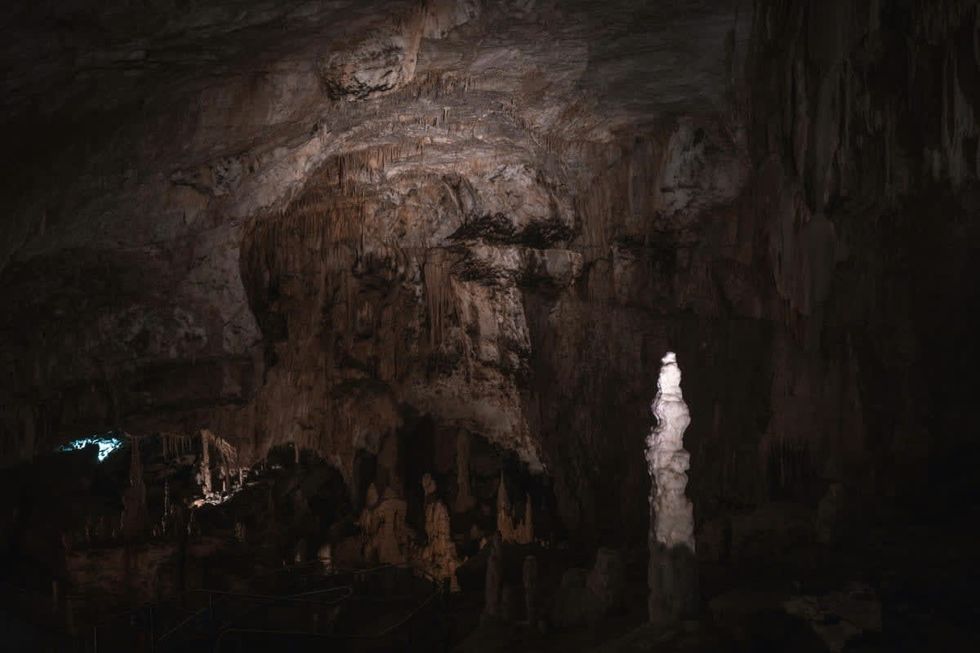 In the depths...Pexels | francesco ungaro
In the depths...Pexels | francesco ungaro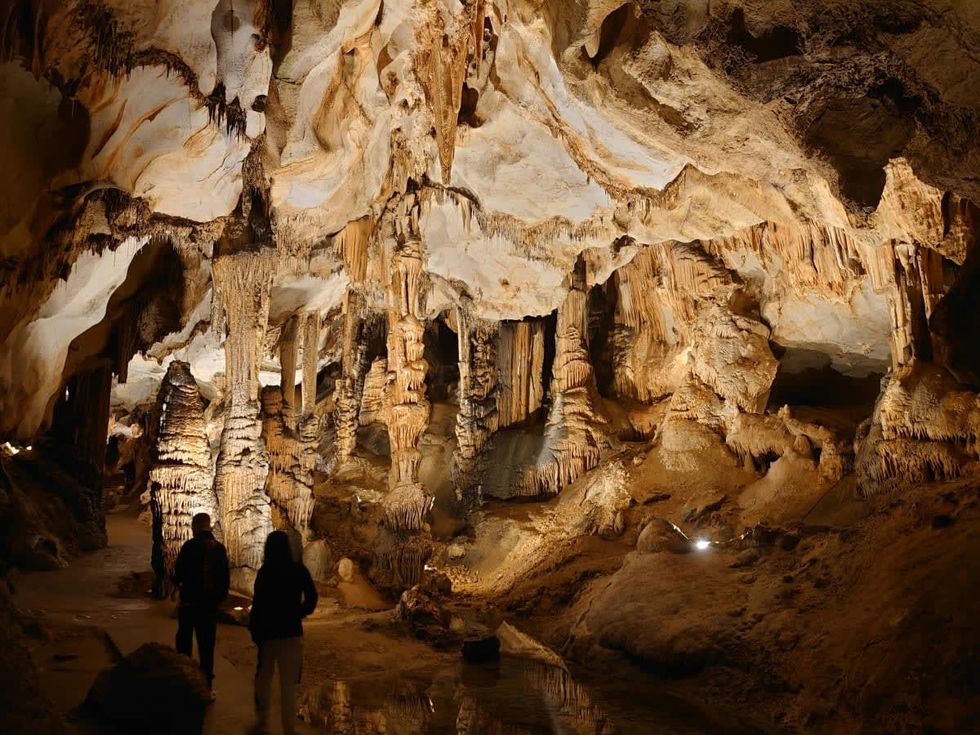 Hope the lights stay on. Pexels | parfait fongang
Hope the lights stay on. Pexels | parfait fongang "That was beyond crazy..." YouTube |
"That was beyond crazy..." YouTube |  "This is the stuff of my nightmares..."YouTube |
"This is the stuff of my nightmares..."YouTube |  "Totally blown away..." YouTube |
"Totally blown away..." YouTube | 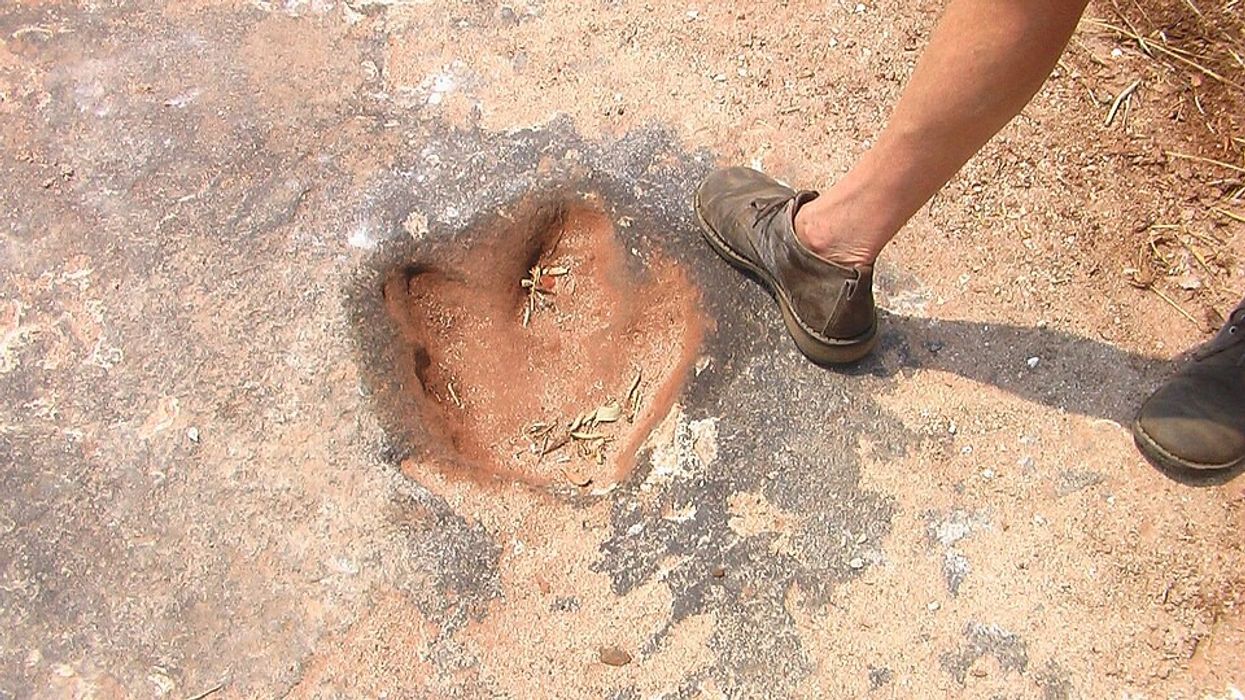
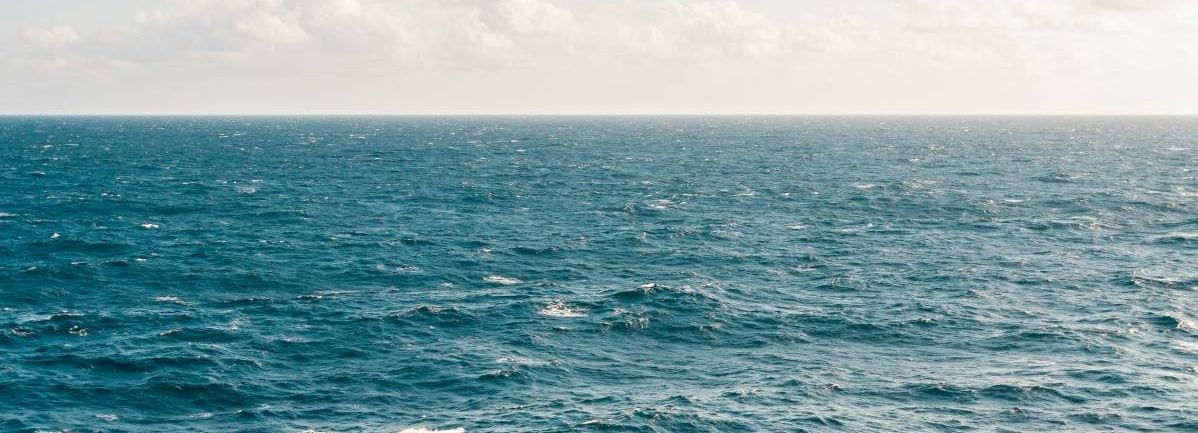 A representative Image of The Atlantic Ocean. Source: Pexels | Kellie Churchman
A representative Image of The Atlantic Ocean. Source: Pexels | Kellie Churchman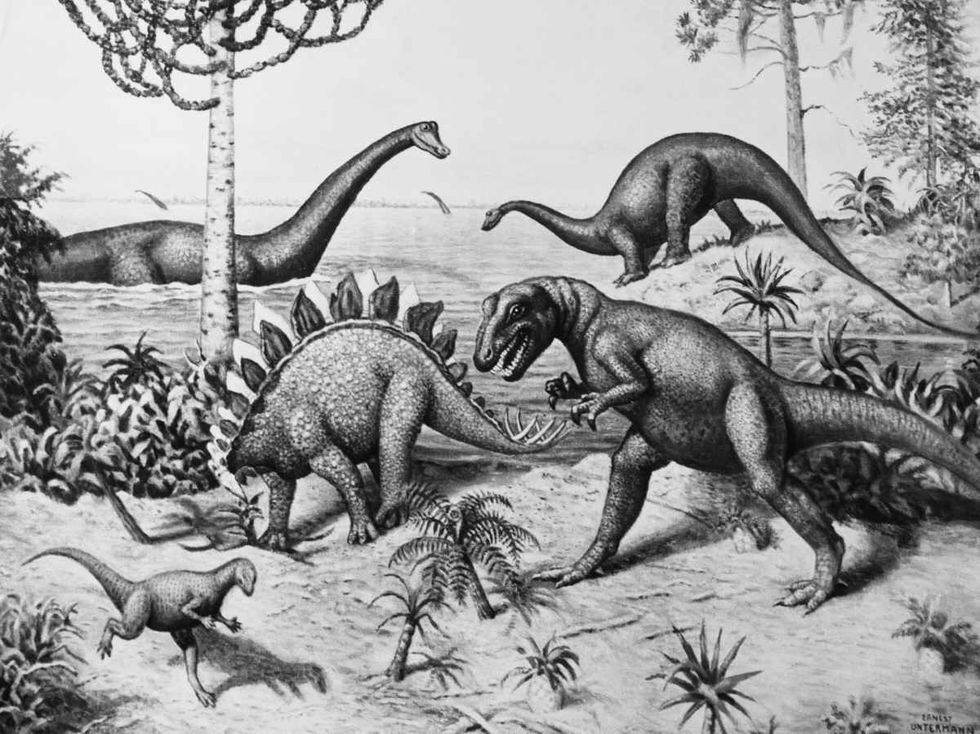 Representative Image Source: Painting from a series by Ernest Untermann in the museum at Dinosaur National Monument, Utah.
Representative Image Source: Painting from a series by Ernest Untermann in the museum at Dinosaur National Monument, Utah.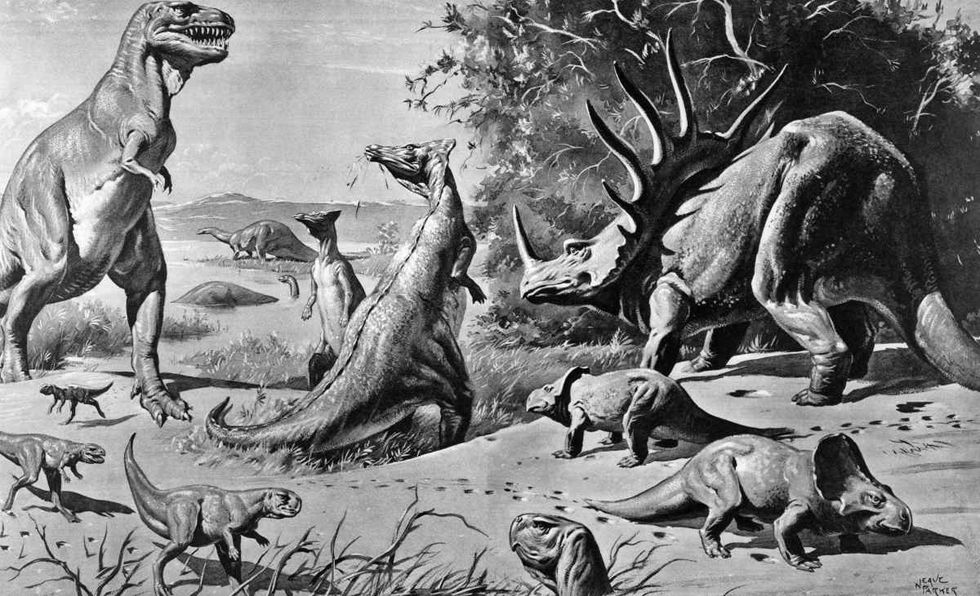 Representative Image Source: VARIOUS DINOSAURS IN GOBI DESERT. Photo by H. Armstrong Roberts/ClassicStock/Getty Images
Representative Image Source: VARIOUS DINOSAURS IN GOBI DESERT. Photo by H. Armstrong Roberts/ClassicStock/Getty Images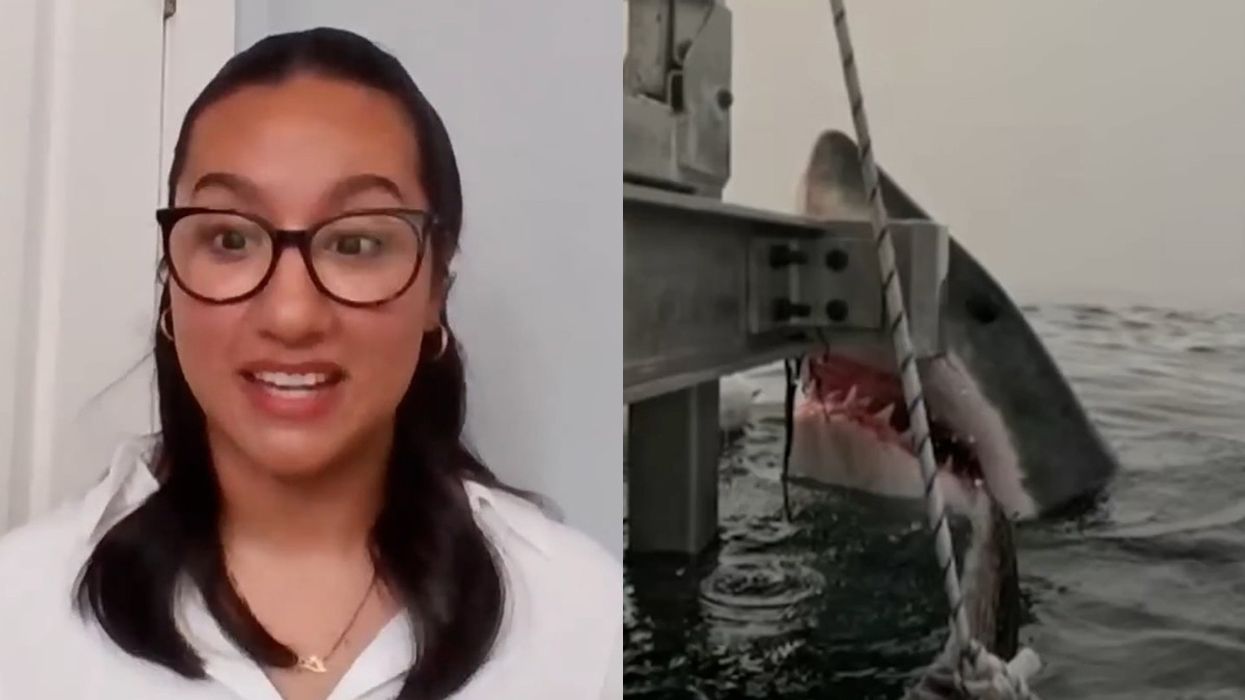
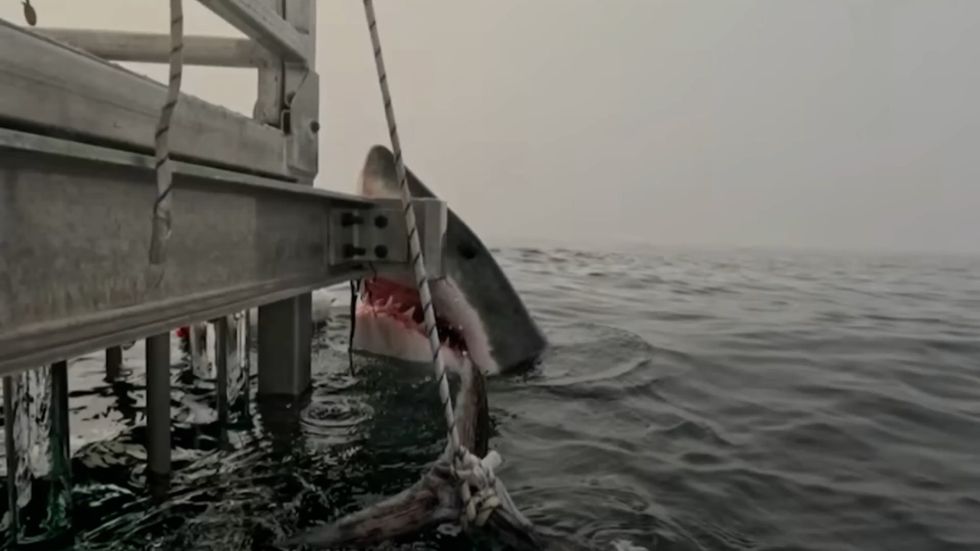 Great white shark pokes its head above water.Image pulled from YouTube video - Photo taken by Geraldine Fernandez
Great white shark pokes its head above water.Image pulled from YouTube video - Photo taken by Geraldine Fernandez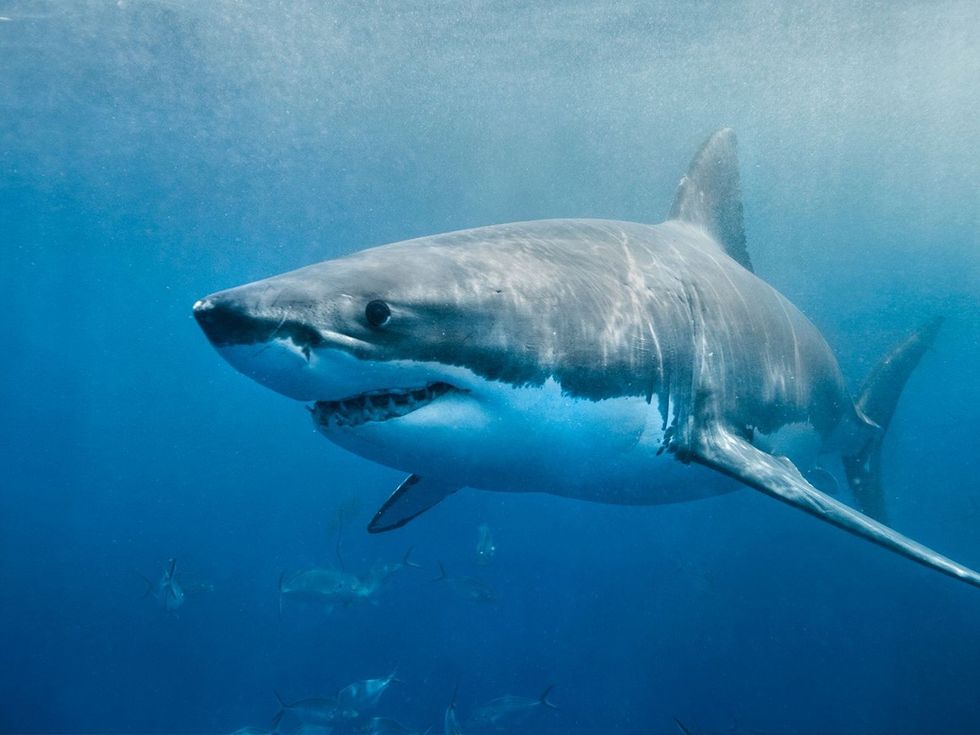 Great white shark swims in the ocean.Image via Canva - Photo by lindsay_imagery
Great white shark swims in the ocean.Image via Canva - Photo by lindsay_imagery
President Donald J. Trump and photo of a forest.
Public united and adamantly opposes Trump’s plan to roll back the Roadless Rule
There doesn't seem to be much agreement happening in the U.S. right now. Differing moral belief systems, economic disparity, and political divide have made a country with so many positives sometimes feel a little lost. Everyone desperately seeks a niche, a connection, or a strong sense of community to which they can feel a "part of," rather than just "apart."
But there seems to be one thing that the country strongly unites over, and that's the "Roadless Rule." With the Trump Administration attempting to roll back conservation policies that protect U.S. National Forests, Americans are saying in harmony an emphatic "No." A nonpartisan conservation and advocacy organization, the Center for Western Priorities, reviewed a comment analysis on the subject. After receiving 223,862 submissions, a staggering 99 percent are opposed to the president's plan of repeal.
What is the 'Roadless Rule' policy implemented in 2001?
The Roadless Rule has a direct impact on nearly 60 million acres of national forests and grasslands. According to the U.S. Department of Agriculture, the rule prohibits road construction and timber harvests. Enacted in 2001, it is a conservation rule that protects some of the least developed portions of our forests. It's considered to be one of the most important conservation wins in U.S. history.
America's national forests and grasslands are diverse ecosystems, timeless landscapes, and living treasures. They sustain the country with clean water and the wood products necessary to build our communities. The National Parks protected under their umbrella offer incredible recreational retreats and outdoor adventure.
Why does the administration want to roll it back?
U.S. Secretary of Agriculture Brooke L. Rollins told the Department of Agriculture in a 2025 press release, “We are one step closer to common sense management of our national forest lands. Today marks a critical step forward in President Trump’s commitment to restoring local decision-making to federal land managers to empower them to do what’s necessary to protect America’s forests and communities from devastating destruction from fires." Rollins continued, “This administration is dedicated to removing burdensome, outdated, one-size-fits-all regulations that not only put people and livelihoods at risk but also stifle economic growth in rural America. It is vital that we properly manage our federal lands to create healthy, resilient, and productive forests for generations to come. We look forward to hearing directly from the people and communities we serve as we work together to implement productive and commonsense policy for forest land management.”
Forest Service Chief Tom Schultz explained the Roadless Rule frustrated land management and acts as a challenging barrier to action. It prohibits road construction needed to navigate wildfire suppression and properly maintain the forest. Schultz said, “The forests we know today are not the same as the forests of 2001. They are dangerously overstocked and increasingly threatened by drought, mortality, insect-borne disease, and wildfire. It’s time to return land management decisions where they belong – with local Forest Service experts who best understand their forests and communities."
Why are people adamantly opposed to the proposed rollback?
A 2025 article in Earthjustice, a nonprofit environmental law organization, expressed its concern over the protection of national forests covering 36 states and Puerto Rico. A rescinded rule allows increased logging, extractive development, and oil and gas drilling in previously undisturbed backcountry. Here is what some community leaders had to say about it:
President Gloria Burns, Ketchikan Indian Community, said, "You cannot separate us from the land. We depend on Congress to update the outdated and predatory, antiquated laws that allow other countries and outside sources to extract our resource wealth. This is an attack on Tribes and our people who depend on the land to eat. The federal government must act and provide us the safeguards we need or leave our home roadless. We are not willing to risk the destruction of our homelands when no effort has been made to ensure our future is the one our ancestors envisioned for us. Without our lungs (the Tongass) we cannot breathe life into our future generations.”
Linda Behnken, executive director of the Alaska Longline Fishermen’s Association, stated, "Roadbuilding damaged salmon streams in the past — with 240 miles of salmon habitat still blocked by failed road culverts. The Roadless Rule protects our fishing economy and more than 10,000 jobs provided by commercial fishing in Southeast Alaska.”
The Sierra Club's Forest Campaign Manager Alex Craven seemed quite upset, saying, "The Forest Service followed sound science, economic common sense, and overwhelming public support when they adopted such an important and visionary policy more than 20 years ago. Donald Trump is making it crystal clear he is willing to pollute our clean air and drinking water, destroy prized habitat for species, and even increase the risk of devastating wildfires, if it means padding the bottom lines of timber and mining companies.”
The 2025 recession proposal would apply to nearly 45 million acres of the national forests. With so many people writing in opposition to the consensus, the public has determined they don't want it to happen.
Tongass National Forest is at the center of the Trump administration's intention to roll back the 2001 Roadless Rule. You can watch an Alaska Nature Documentary about the wild salmon of Tongass National Forrest here:
- YouTube www.youtube.com
The simple truth is we elect our public officials to make decisions. The hope is they do this for all of our well-being, although often it seems they do not. Even though we don't have much power to control what government officials do, voicing our opinions strongly enough often forces them to alter their present course of action. With a unanimous public voice saying, "No!" maybe this time they will course correct as the public wishes.